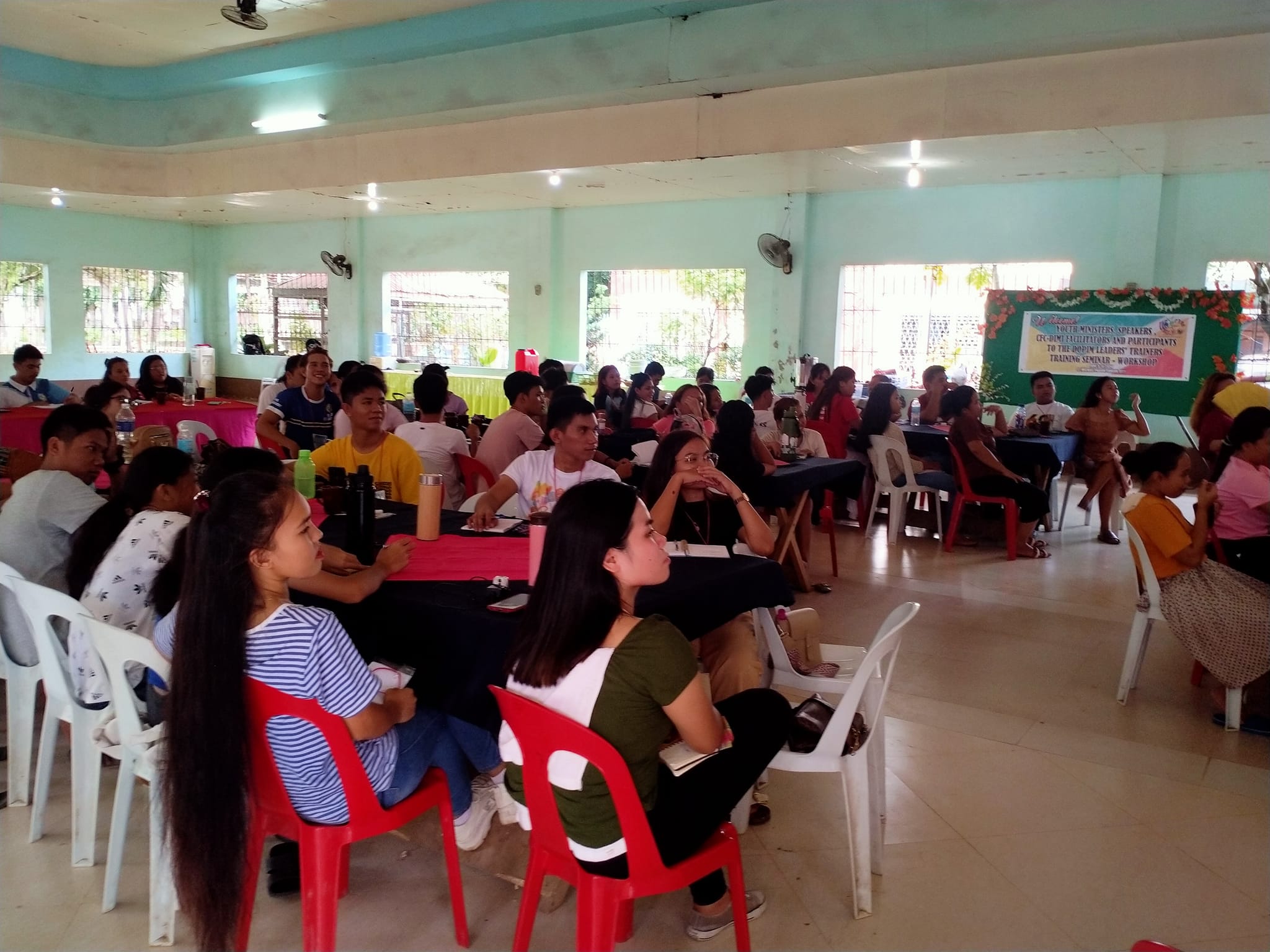June 14, 2024 – Friday 10th Week in Ordinary Time
Click here for the readings (https://bible.usccb.org/bible/readings/061424.cfm)
Just like many of you, I was also excited to join and participate in this youth leadership training. This is not the first for me to have such kind of training, but my first in DOPIM. Some might have been surprised when they knew that a Youth Director joined and become a participant in this training. Harlyn, one of my groupmates, whom we fondly also call as Belinda, said, she could not believe that I was a priest. On the first night, she excitedly greeted us and exchanged conversation with us. But when she knew, she became extra respectful to me.
I actually have my own reasons why I joined and become a participant just like you. And these reasons reveal the priorities that I have now as a youth minister and of what I want to impart to the Young Ministers in particular of the Prelature of Marawi. I canceled parish schedules and told my mother I couldn’t be home for her 60th Birthday last Tuesday because of a youth gathering that I have to attend – just to make way for this event. But more than these reasons, there are more important ones (three reasons) that I want to share with you all and not just for the Youth Ministers of the Prelature of Marawi.
First, a youth leader is a youth minister. Let us remind ourselves that though we are leaders exercising authority, but our first vocation is to be a minister, in giving service for others so that we may journey together to bring each one closer to Christ. In this ministry, I remind myself that I am called to learn and unlearn with you and from you. It does not diminish the direction of a team or youth leader, or pastor or youth minister but it rather enhances the process of learning and unlearning things. This helps the ministry to slowly discover the gifts and talents of the young, affirm and correct one another so that we bring ourselves closer to Christ. This makes the ministry to be Christ-Centered.
Second, as a youth minister, I am friend. This calls me that to be a friend I also need to develop a listening ear, to have an understanding heart, and to learn the art of a welcoming embrace. This is also the reason why I want to be identified as a friend rather than as an authority figure. Being a friend is a gift that I can offer to the young, a grace that I ask from the Lord so that my presence will be a non-threatening and non-intimidating presence. I am aware that I am a youth minister and not a police who checks youth activities and would just give a mouthful of curses when something wrong happens in the program. The gift of my presence means my ability to feel what others feel, to accompany and journey those who feel afraid and confused. And a presence that builds life-giving friendships (healthy relationships), not romantic relationships, neither a master-slave relationship with the youth nor a manager-staff relationship. This makes the ministry to be Human-Oriented.
Third, as a youth director, I am a companion and a mentor by inculcating to you the value of building and creating relationships. We, indeed, need companions, friends and mentors who will assure our co-young people that they are not alone. Today, one of the biggest difficulties of the young is the tendency to be lonely and alone. Let our co-young people know and feel that they are not alone and that God and our community are much bigger than their problems and struggles. Each of us is called to be a companion and a mentor of the young and of one another so that we may be able to go out from our own comfort zones, accompanying the young to be more self-giving, reaching out to others with much love and understanding. Meaning, being a companion and a mentor calls me to journey with you so that we may be able to go out together, to meet and encounter more young people. This makes the ministry to be Mission-Directed.
This is what we discover in the story of Prophet Elijah. God himself whom he discovered in a “tiny whispering sound,” meaning in a non-threatening and non-intimidating presence, ministered to him, became his friend, companion and mentor in his life as a prophet who was overwhelmed with fear, anxiety and doubts.
We also remind ourselves that for us to become true, effective and compassionate young leaders and ministers, we also need to cut off anything that is unhealthy in our ministry to the young. This is how Jesus reminds us today in the Gospel, “cut off and throw away” anything that separates us from the grace of God and from one another.



We may have the tendency to be controlling and manipulating in our ministry, stop and cut off those attitudes. We may be emotionally driven and highly sensitive of comments and suggestions from others, learn to be more objective and rational. We may be self-centered and image-conscious, then, cut them off and bring Jesus to the ministry rather than ourselves. We may also become merely activity-oriented and output-driven to the point that we overwork ourselves and our co-young people with so much programs, but forgetting how to talk with them personally and lovingly.
Friends, my co-youth ministers, as leaders, we are called to build and make life-giving encounters with our co-young people in this transition of life of the young so that we may be able to encounter Christ in all things and in everything. And it is through these life-giving encounters, no matter how insignificant they can be to others, that we can make significant impact to a struggling young person, in the hope of a transformed-self according to God’s desire for us. Hinaut pa.



